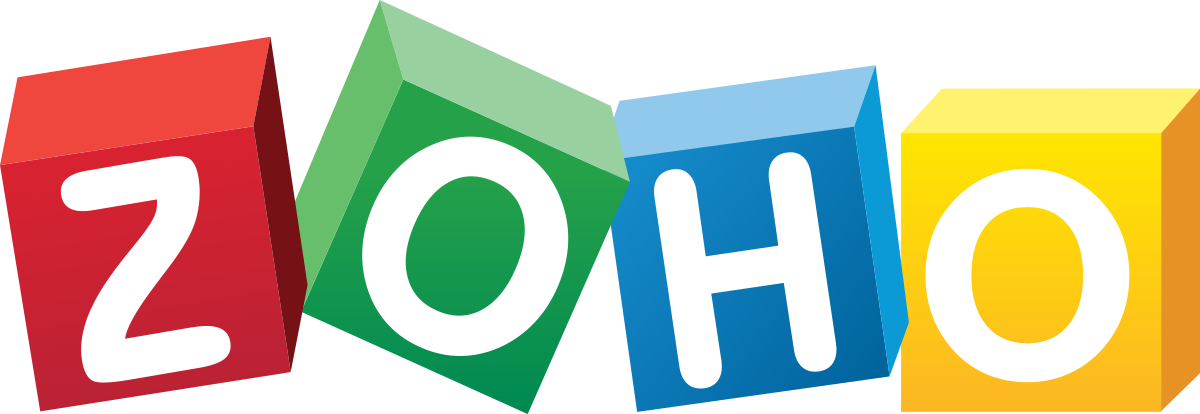Top 7 Business Intelligence (BI) Tools To Make Your Work Smarter
Introduction
Social media has invaded our planet like a wildfire envelops the whole forest. Everything and everyone is on social media to a point where we need to sometimes sit back and wonder how we managed without it.
Social media has also provided marketers with a lot of data. This data is used by them to interact, segment, and target customers. The business use of social media has increased multiple folds with an ever-increasing amount of data.
However, it has become continuously difficult to manage such a hefty amount of data. Hence, now it has become important more than ever to arrive at a reliable, quantifiable, and justifiable conclusion.
In simple words, it has become very important to capture this data to further analyze and visualize it in a profitable way.
And this is where the Business Intelligence reporting tool swoops into our rescue. BI tools help businesses analyze huge data and find crucial insights that indicate the customer’s behavior.
Contents
What Are Business Intelligence Tools?
BI tools are a crucial part of marketing in any business. And like I said earlier, they help you to analyze data. They assist marketers to understand trends and drive insights to ensure imperative and calculated decision-making.
Some examples of BI tools are data visualization, dashboards, data warehousing, and reporting.
Why do Businesses Use Business Intelligence Tools?
Today, Big data has become the backbone of businesses. But, all this data can’t benefit anyone if we can’t make sense of it and use it to improve business outcomes.
So, as Big Data started to pile up BI software gained increased popularity.
Business intelligence allows companies to generate, track, and compile data on a huge scale. Businesses can better understand their customers by standardizing, aggregating, and analyzing that data.
BI tools offer useful features and functions that make business easier. They also provide marketing guidelines and allow them to better forecast revenue growth.
Why Does Your Company Need to Use Business Intelligence Tools?
Data has become an indispensable tool. For any business, it has become important to have a grip on their data. Other reasons include:
Smart decision making: BI tools help convert information into structured and analyzable insight leading to better business decisions and even better revenues.
Marketing goals: Boost its marketing function by improving sales information. This information helps in fine-tuning their marketing campaigns and in turn, makes them more profitable and effective.
Deliver Outstanding CX: BI tools provide businesses with customer insight to help them segment and identify profitable customers. It also helps attract the right prospects and meet growth targets.
Increase productivity: BI tools help automate tasks, prioritize work, and refine processes to improve business productivity.
Compliance and Data Accuracy: BI tools help businesses centralize data and expose inaccuracies to increased cost and any kind of brand damage.
Increased ROI: Businesses experience a major improvement in their ROI one all the about points are fulfilled. In business, everything sees a spike in performance right from sales deals, day-to-day efficiency, CX, and future strategies.
Once you have prepared your mind on taking up business intelligence tools you’ll need to find the one tool that fits your business needs. So, we have compiled a list of top business intelligence tools to help you choose from the best.
Top Business Intelligence Tools in the Market
#1. SAP
SAP Business Intelligence is one of the best BI tools. It is also the most useful and handy tool when it comes to advanced analytics solutions. This tool offers a wide variety of functions including real-time BI predictive analytics, planning & analysis, and machine learning.
Features that make this BI tool especially unique are data visualization, analytics applications, reporting & analysis, office integration, and mobile analytics.
SAP is a robust software and offers tons of functionalities intended for all roles including IT, end uses, and management.
Features:
- Flexible and transparent solutions
- Integration with any system
- Modular concept
- Easy setup and space utilization
- Allows a next-generation database system
- Combines analytics and transactions
- Provide On-premise support
- Provide cloud deployment
- Simplify data warehouse architecture
- Easy Integration with SAP and non-SAP applications
SAP is integrated BI software which is best suited for an enterprise-level application for open client/server systems. Their set standard provides businesses with the best business information management solutions
#2. Sisense
Sisense BI tool is a web-based end-to-end business intelligence platform. It provides fast analysis and exploration of data due to its approach to processing analytics.
The platform unifies data from all sources and then collects, integrates, and visualizes it for better data management. It also provides real-time data feeds with intuitive reports and dashboards.
Its functionalities include AI, business performance management, web analytics, data visualization, reporting, and predictive analytics.
This tool gathers all the crucial information of a business from all the sources and then unifies them into a single repository.
Features:
- End-to-end BI solution
- On-premise or cloud installation
- Access on web and mobile devices
- Drive fast data analysis
- Scaleable
- Integrates data from multiple sources
- Simplified workflow
- Real-time interactive dashboards
- Insights and visualizations across platforms
- Advanced analytics
Sisense doesn’t require any specialized user training and is suited for enterprises of all sizes and in diverse industries.
#3. Zoho Analytics
Zoho Analytics is a self-service BI cloud-based platform. The platforms help connect to a variety of sources to collect data and auto-merge data from popular business software.
This platform offers a wide range of functions including chart types, reports and dashboards, self-service BI, embedded analytics, drag-and-drop interface, scheduled data backup, multi-language support, data imports, email schedules, and many more.
However, some functionality that distinguishes Zoho Analytics from others is its features such as Al assistants for ease of collaboration, Android apps for mobile, and options for third party integration.
This software is also widely popular among businesses because it includes providing real-time visibility through various reports.
Its drag-and-drop interface, widgets, and charts allow users to create a customized dashboard. Additionally, team members can also share data and collaborate on tables and reports.
It can integrate with other apps including Microsoft Dynamics CRM, Hubspot CRM, Facebook, Twitter, YouTube, Google Analytics, and more.
Features:
- Cloud-based
- Self-service
- Installs on-premise or on-cloud
- Access to on-premise mobile and cloud systems
- Collects data from multiple sources
- Synchronization of automatic data feeds
- Drag and drop tools
- Dashboards, visualizations, and reports
- Shares reports and dashboards through apps and web page
- Workspace for collaboration
The drag and drop tools available in the software to help you create dashboards, visualizations, and reports don’t require any technical skills. Lastly, the platform is suitable for all business types, sizes, and industries.
#4. Tableau
Tableau Tool is a great self-service analytics and BI platform for data discovery and data visualization. It provides easy analyses, visualization, and data sharing.
The most special part of the platform is its capability to analyze data and present it in dashboards and reports. It allows for generating relevant insights and exploring new opportunities.
Its other functionalities include filter data, a list of native data connectors, data notifications, mobile-ready dashboards, dashboard commenting, automatic updates, server REST API, metadata management, and more.
Similar to others, this one also has an option for on-premise installation. It also helps businesses collect data from multiple sources such as SQL databases.
Features:
- On-premise and fully hosted
- Installs on-premise, public cloud, Tableau cloud
- Access on web and mobile devices
- Delivers intuitive and self-service analytics
- Integrates data from multiple sources
- Real-time visualizations
This tool can be used even by users without technical knowledge for intuitive and self-service analytics.
It can be customized to serve various industries such as education, communication, banking, healthcare, technology, real estate, and manufacturing.
Additionally, it offers three standalone products: Tableau Desktop, Tableau Server, and Tableau Online.
#5. Yellowfin BI
Yellowfin BI is an end-to-end analytics platform and business intelligence tool. The platform combines visualization, machine learning, and collaboration to makes assessing, monitoring, and understanding data easy.
Intuitive filtering allows it to filter through tons of data and open dashboards thanks to this tool’s flexibility.
It provides data preparation, AI-driven dashboards, analysis, and collaboration through reports. Its dashboard presents real-time data and drill-downs for information.
Features:
- Web-based, intuitive, and end-to-end tool
- On-premise or cloud installation
- Access on web and mobile devices
- Individual components
- Integrated analytics suite
- Integrates data from multiple sources
- Delivers an intuitive drag and drop interface
- AI-driven dashboards
- Collaboration through reports and visualizations
- Access and monitor business-related data
- Interactive reports
- Supports the business decision-making process
It works on-premise or in the cloud depending on enterprise needs. It is a single integrated solution developed for companies across varying industries and businesses of all sizes.
#6. Datapine
Datapine is an all-in-one BI platform for a comprehensive self-service analytics approach. It enables businesses to easily integrate different data sources, build interactive business dashboards, perform advanced data analysis, and generate actionable business insights.
It has the potential to connect all data sources in a centralized location to assist the business in data comprehension through detailed visualizations.
Datapine offers a variety of innovative features such as intelligent alerts, interactive dashboard functions, and predictive analytics.
It has been made seamless with its data integration capability allowing users to connect and analyze information across numerous sources.
Features:
- Self-service analytics
- Dashboards
- Share and report
- Embedded analytics
- Data warehouse and data security
- Makes complex data sets simple
The platform is simple and easy to use and even non-tech users can master it without much experience.
It’s perfect for all small, medium, and large businesses with its modern data dashboards. It provides businesses with a clear picture of their goals, progress, and other relevant information.
#7. Oracle BI
Oracle BI is an end-to-end BI tool that offers an integrated reporting, analysis, query, data integration, and alerting and management.
Its functionalities include almost all BI capabilities such as dashboards, alerts, proactive intelligence, ad hoc, and more.
The tool can help simplify analytics strategy by standardizing on one integrated platform. Also, it centralizes data models and metrics for a comprehensive representation of the business.
Furthermore, it helps business leaders to securely access and explores data. Predictive and statistical questions empower key decision-makers to find answers. It allows for creative storytelling with its visual analytics around any business.
Features:
- Connect directly to more Oracle sources
- Big Data for broader analysis
- Hundreds of pre-built functions
- Fast analysis with R scripts
- Rich data mash-ups.
- Cloud or on-premises installation
- Create mobile analytical apps without code
- Build apps responsive to any device
- Offer In-memory enhancements
- Faster query performance
This tool is great for businesses that need to analyse a large volume of data.
FAQs on Business Intelligence
What is Business Intelligence?
Business Intelligence or BI is a process used by enterprises to convert data into meaningful information. In simple terms, business intelligence is an analysis of data into useful business information.
What are the Stages of Business Intelligence?
Data sourcing: Extracting information from multiple sources. Data analysis: Synthesizing useful information from data. Situation awareness: Filtering out irrelevant information. Risk assessment: Discovering current and future risks and appropriate actions that can be taken. Decision support: Using information wisely to provide a warning on important events.
What are the Types of Business Intelligence Tools?
Dashboards Visualizations, Drill-Down, Reporting, Predictive Analytics, Data Mining, ETL, OLAP.
Is SQL a Business Intelligence Tool?
SQL or Server Business Intelligence are tools that can help transform data into useful business information for better decision making.
Who are the Users of Business Intelligence?
Data Analysts, IT Professionals, CEO or CXO, and others.
Conclusion:
In this blog, we have tried to cover the top business intelligence software. However, it is important for any business that before choosing any business intelligence platform they first look at their specific requirements.
While most of these BI tools have many similar functions the way they perform and other differences can make a huge difference, But, if you are searching for the best business intelligence tool for your business, my suggestion would be to prefer BI dashboard tools more than others as they are easier to use.
So, instead of finalizing a tool purely based on its review, sit down with your teams and underline your needs and then select the right one. And, remember the best BI tool or the best business intelligence platform will be the one that can fulfill all your needs.
Author Bio –



